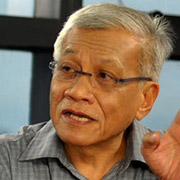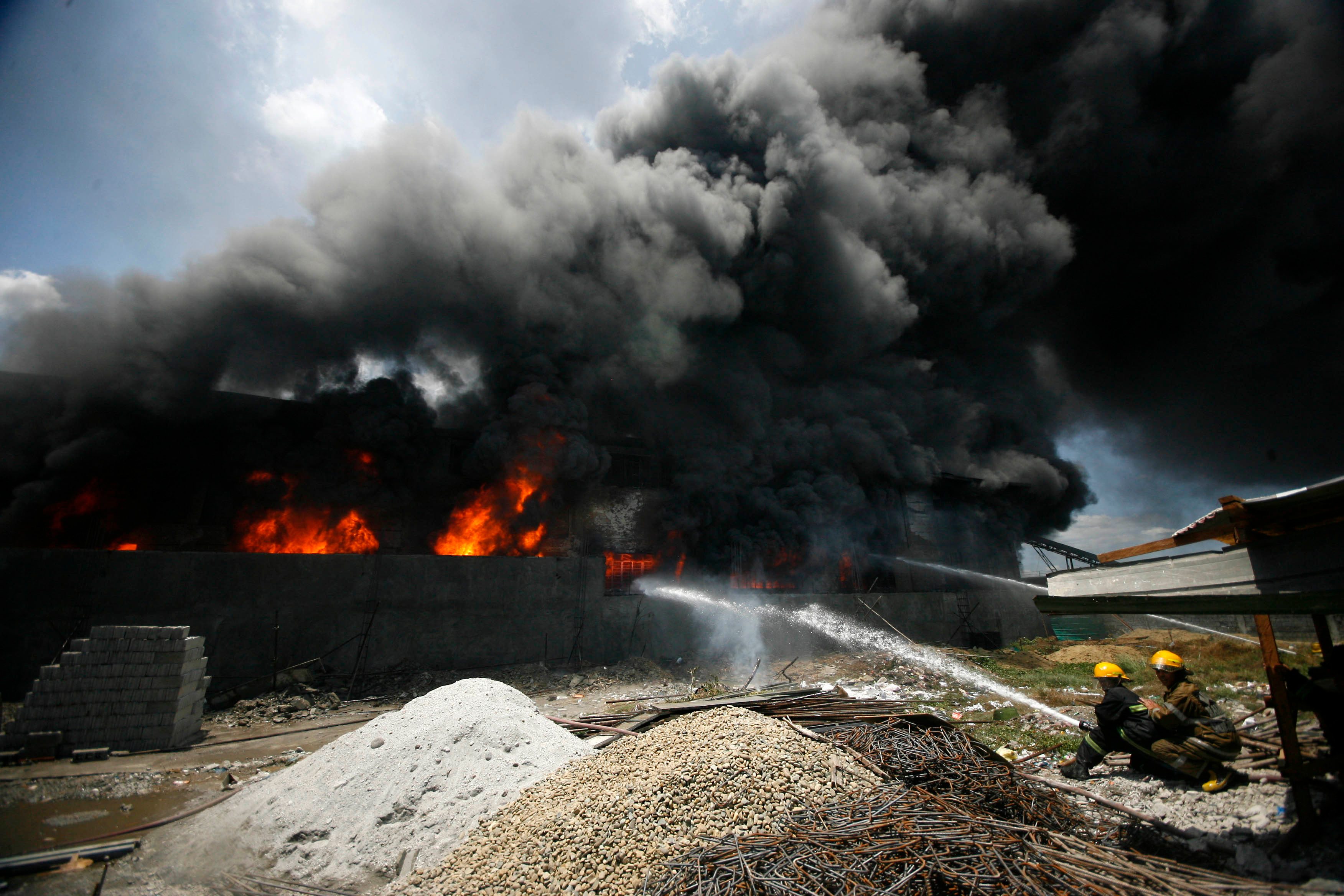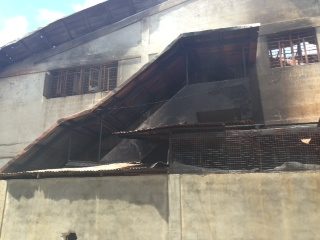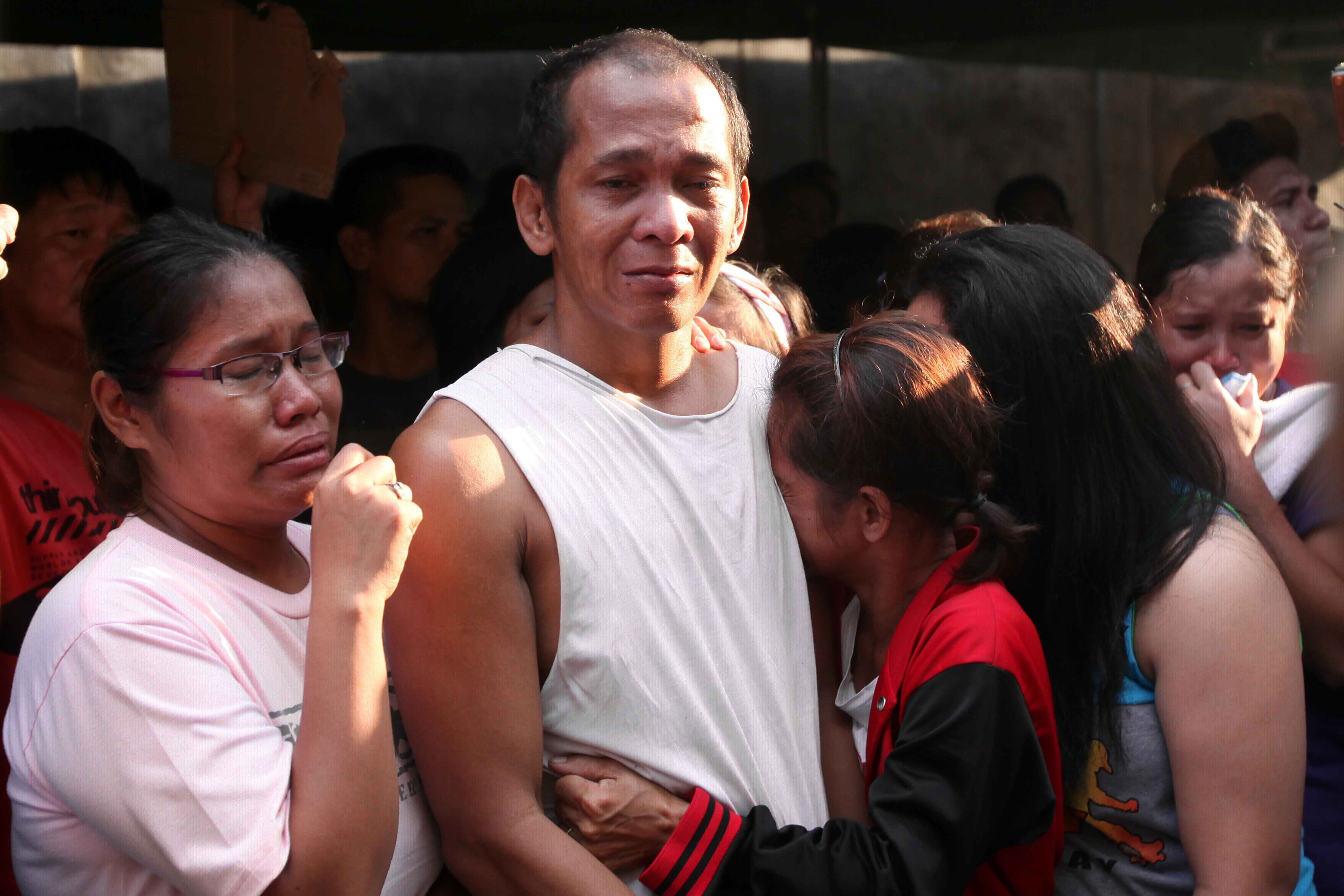SUMMARY
This is AI generated summarization, which may have errors. For context, always refer to the full article.
 The fire that hit the Kentex manufacturing plant in Valenzuela produced the worst factory fire in the country’s history. Some 72 workers, the majority women, perished in the blaze, but the president did not show up to comfort the survivors and the families of the dead after the tragedy. For some, his absence was reminiscent of his failure to attend the somber homecoming of the SAF 44 last January. For others, his behavior was in stark contrast to his rushing to the posh Serendra 2 shortly after an explosion there on May 31, 2013.
The fire that hit the Kentex manufacturing plant in Valenzuela produced the worst factory fire in the country’s history. Some 72 workers, the majority women, perished in the blaze, but the president did not show up to comfort the survivors and the families of the dead after the tragedy. For some, his absence was reminiscent of his failure to attend the somber homecoming of the SAF 44 last January. For others, his behavior was in stark contrast to his rushing to the posh Serendra 2 shortly after an explosion there on May 31, 2013.
It is hard to ignore the reality that the man does have a problem emphatizing, much less sympathizing, with the lower classes. Attending wakes of the well to do is something he does regularly, but when it came to that of Jennifer Laude, the transgender woman slain by a US marine, he stayed away, giving as his excuse that he did not attend the funerals of people he did not know. Is the same elite syndrome at work again?
A pro-management, anti-worker administration

Perhaps Aquino has not appeared in Valenzuela out of a subliminal avoidance of the terrible truth that the Kentex factory fire symbolizes: the anti-worker stance that his administration and those of his predecessors have followed over the last 3 decades.
Talking to a group of 30 survivors on Friday afternoon, the fruits of the entrenched pro-management posture of the government were much in evidence. Most of the 72 workers who died were trapped on the second floor. The fire started by the sparks from a welding job landing on drums of combustible chemicals snaked up the main exit from the first floor. Driven to the rear, the workers found no other exit and were consumed by the flames. The 45 or so who survived nearly did not make it: on the first floor, they got out only because they accidentally found the key to a locked rear door lying on a table.
The survivors unanimously attested to the fact that they had not received instructions in case of fire and not undergone fire drills, nor were they aware of any safety inspectors visiting the factory. Yet in her first response to the fire, Labor Secretary Rosalinda Baldoz said the factory had passed safety inspections in September 2014.

The obviously lax enforcement of safety regulations is not accidental. It stems from the state’s stance of going easy on capitalists since they are seen to be the source of growth, wealth, and jobs.
Neoliberalism and cheap labor
Neoliberalism, or a philosophy that would eliminate as much regulation of capital as possible, was also evident in the work force of Kentex, a firm owned by Filipino-Chinese entrepreneurs that produced “Havanas” or flipflops and other footwear for the domestic market and for export. According to the survivors, some 20% of the work force were contractual workers or “pakyawan,” including some minors brought in by their mothers to earn some extra money for the family for the summer. They received P202 for a day’s work, or less than half the current minimum wage for the national capital region.
Another 40 to 60% were people recruited by an agency, CJC Manpower Services. While these non-unionized workers received the minimum daily wage of P481, the agency skimmed off the required social security, Philhealth, and Pag-ibig benefits provided by the employer. “Hindi kami hinuhulugan” was the angry response of the survivors when I raised the issue. “They don’t pay our monthly installments.”

At the most, 20% of the workers were regular workers who were members of a union. But as one of the union members himself volunteered, cynically, “We are a company union.”
A decimated working class
The trend toward contractualization, pushed by local and foreign investors, accommodated by government, and legitimized by economists, has led to the disorganization and de-unionization of the labor force. Today, only about 10% of the work force is organized, with one prominent labor leader admitting that, “Ironically, labor unions are not as politically strong today as during the dictatorial regime of President Marcos, when Blas Ople was Labor minister.”

In his last State of the Nation address on July 28 last year, the president boasted that there were only two cases of workers’ strikes in 2013 and only one in 2014. That the president considered this news as positive only showed how detached from workers’ reality he is, for the radical reduction of the number of strikes does not come from improving living standards but from the weakening of labor’s bargaining power owing to pro-management policies, government failure of enforce labor laws, and aggressive union-busting by employers.
Legislative efforts to reverse contractualization by limiting the number of workers a firm may hire to 20% or less have either died in committee or failed to make it to the House floor in the last two Congresses. In a dialogue with labor leaders in 2013, Aquino himself said he opposed limits to contractualization since this would eliminate 10 million jobs. Challenged by the astonished labor leaders, the president could not name his source for his claim.
However, a growing number of economic analysts, like Jesus Felipe of the Asian Development Bank, are departing from this orthodox view. According to them, it is precisely the absence of a dynamic internal market owing to the lack of purchasing power by a large segment of the labor force that are doomed to low wages that accounts for the inability of the economic to achieve sustained take-off.
Some labor leaders see a silver lining in the Valenzuela tragedy. “The 72 lives lost were a terrible, terrible loss,” said Josua Mata, secretary general of the labor federation Sentro. “But if this tragedy brings to the national consciousness the unacceptable state to which management and government have reduced our workers and inaugurates an era of reform, then their sacrifice might not be in vain.”
One can only hope he is right. – Rappler.com
Until his resignation from the House of Representatives two months ago owing to differences with the Aquino administration, Walden Bello chaired the House Committee on Overseas Workers’ Affairs and was one of the principal authors of the Security of Tenure Bill.
Add a comment
How does this make you feel?
There are no comments yet. Add your comment to start the conversation.